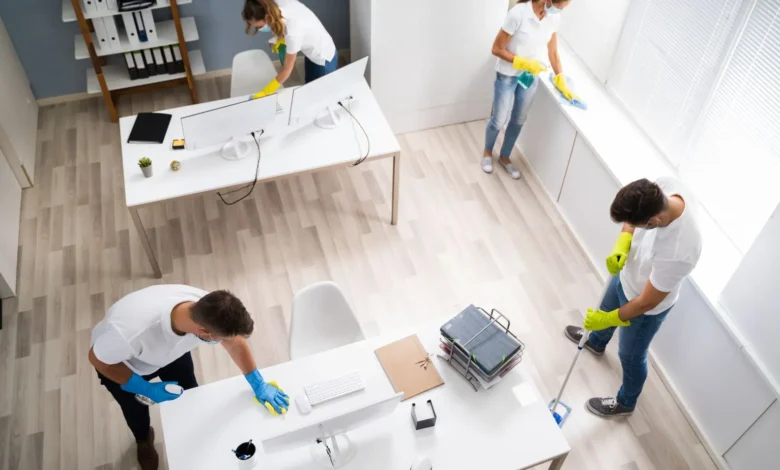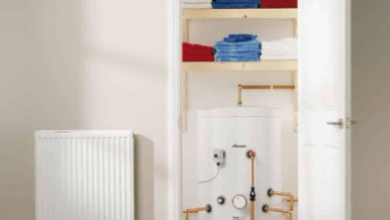The Science of Office Cleaning: How to Minimise Employee Sick Days

Ensuring a healthy and productive working environment is crucial for the success of any business. Employee absence due to sickness can have a significant impact on an organisation’s efficiency and bottom line. As facilities management has evolved, so too has our understanding of the importance of maintaining a clean office space. Proper office cleaning in Sydney and beyond is not just about a visually appealing workplace but is intrinsically linked to the well-being of staff. Here, we delve into the science behind office cleaning and the strategies that can help minimise employee sick days.
Understanding the Spread of Germs in the Office
Germs and viruses are microscopic but their impact on office health is substantial. They can spread through direct or indirect contact with an infected individual, or by touching contaminated surfaces. In an office setting, common areas like kitchens, restrooms, and workstations can become hotbeds for the transfer of pathogens.
High-Touch Areas and Cross-Contamination
High-touch surfaces such as doorknobs, elevator buttons, and shared equipment are touched by numerous individuals throughout the day, making them prime locations for cross-contamination. Routine cleaning of these areas is vital to prevent the spread of infection.
Indoor Air Quality
The air quality inside an office can significantly affect employee health. Dust, mould, and other airborne particles can lead to respiratory issues and aggravate allergies, contributing to increased sick leave.
Hygiene and Personal Space
An employee’s personal workspace is a breeding ground for bacteria. Regular cleaning of these areas is necessary to prevent the proliferation of germs that can cause illness.
See also: The Benefits of Timely Roof Replacement for Your Home’s Longevity
The Role of Professional Cleaning Services
Professional cleaning services employ knowledgeable and experienced staff equipped with the right tools and cleaning materials to ensure a thoroughly sanitised workplace. Here’s how they can help:
Expertise in Cleaning Products and Techniques
Understanding which cleaning agents to use for different materials and surfaces is key to effective sanitation. Office cleaning professionals are trained in the proper use of these products to eliminate pathogens without damaging office equipment or furniture.
Customised Cleaning Schedules
Every office is unique and professional cleaners can develop a schedule that focuses on the specific needs of a company. This could include more frequent cleaning of high-traffic areas, or deep cleaning sessions during periods when contagious illnesses are more prevalent.
Attention to Detail
Cleaning specialists have an eye for detail and can identify areas that are often overlooked but can harbour harmful bacteria. This meticulous approach is crucial in an effective cleaning protocol.
Best Practices for Minimising Sick Days
Incorporating certain best practices into a company’s cleaning regimen can greatly reduce the occurrence of employee sickness. Let’s explore some of these strategies:
Promoting Hand Hygiene
The importance of hand hygiene in preventing illness cannot be overstated. Employers should facilitate this by providing hand sanitising stations throughout the office and encouraging their use.
Implementing ‘Clean Desk’ Policies
A cluttered desk hinders cleaning efforts. Encouraging employees to maintain an organised workspace makes it easier for cleaners to disinfect surfaces effectively.
Encouraging Sick Employees to Stay Home
Encouraging employees to stay home when they are unwell prevents the spread of illness in the office. It is also important to foster a workplace culture that supports this practice without stigma.
Educating Staff
Education is key in the fight against workplace sickness. Staff training on the proper etiquette for coughing, sneezing, and the importance of regular hand washing has a significant impact on the health of the office environment.
Conclusion
In conclusion, a clean office is a fundamental component in maintaining a healthy workforce. Understanding and implementing the science behind office cleaning by engaging professional services such as those offered in Sydney, prioritising hygiene, and encouraging health-conscious practices amongst staff are effective strategies to minimise employee sick days. Regular, meticulous cleaning and well-informed staff are the backbone of a productive office environment where well-being is a priority.
Ultimately, investing in professional office cleaning services not only has the potential to reduce the presence of germs but also contributes to a more positive workplace culture. Such a proactive approach is an investment in the health of a company’s workforce and, by extension, the company’s long-term success. With forward-thinking management and comprehensive cleaning strategies, businesses can look forward to a vibrant, healthy work space where employee absences are kept to a minimum.



